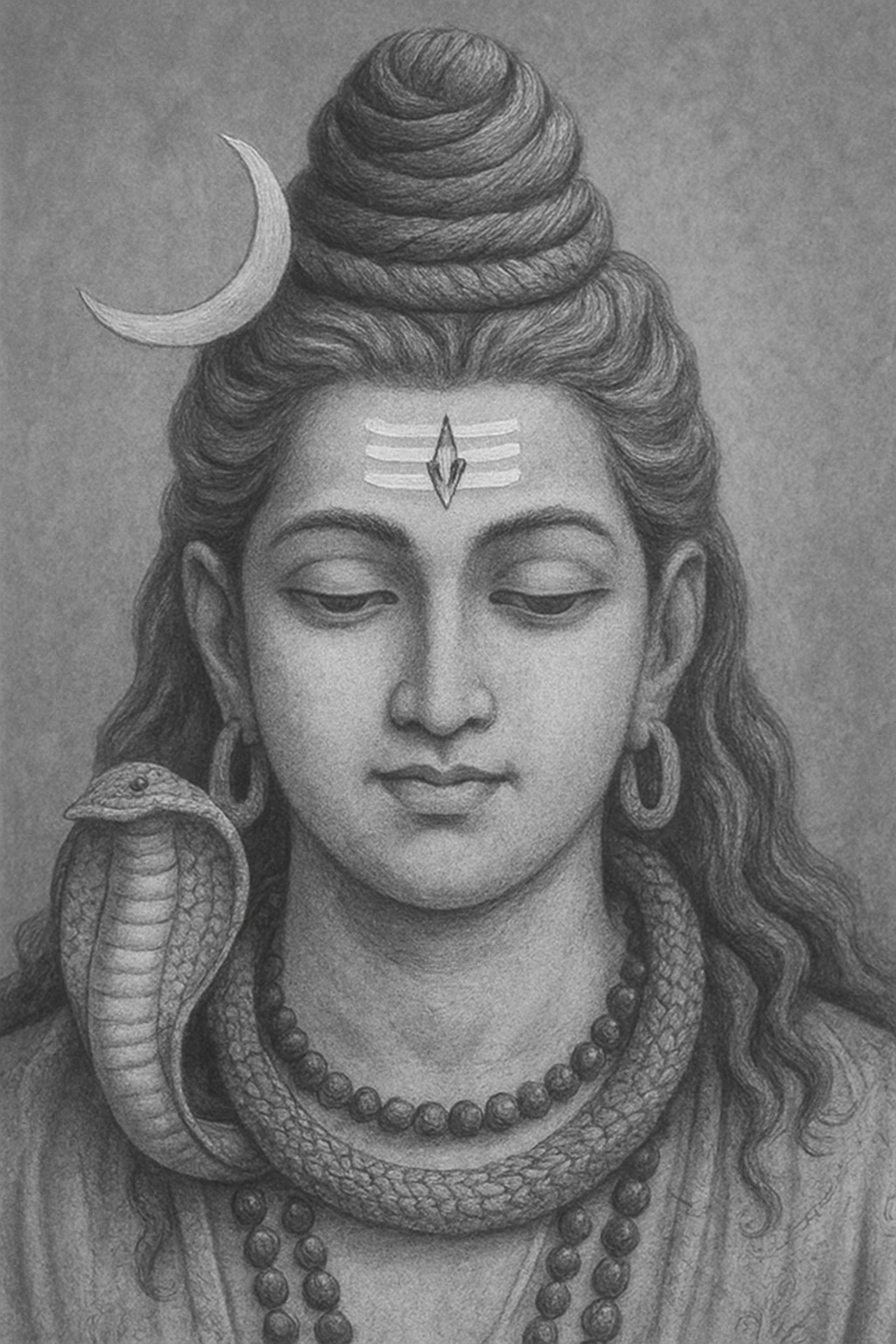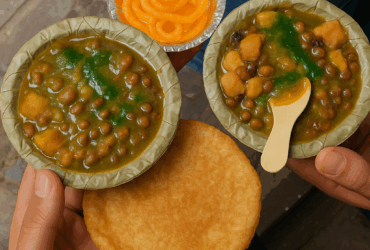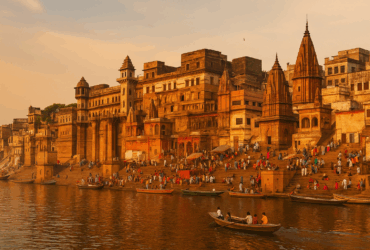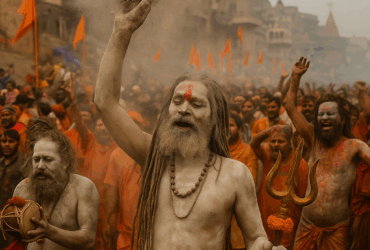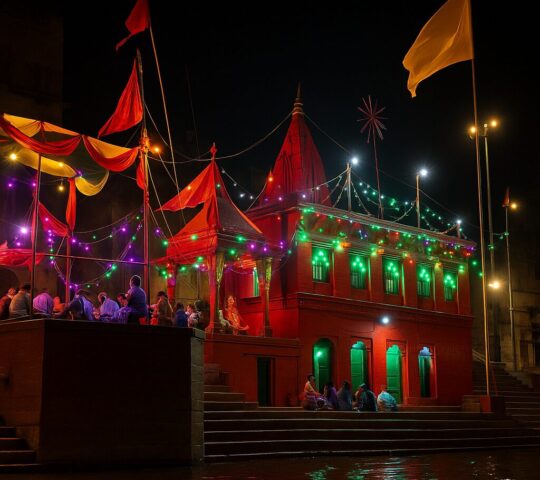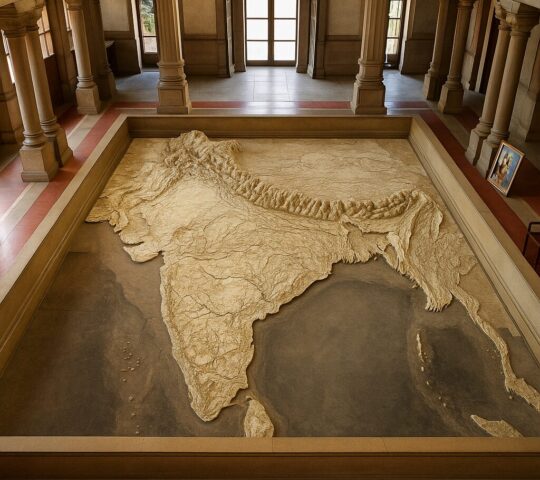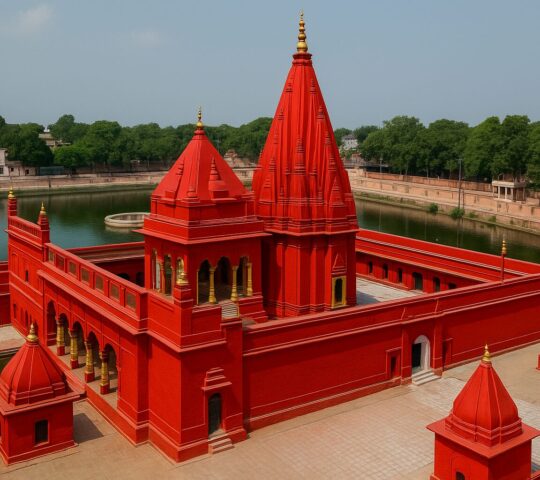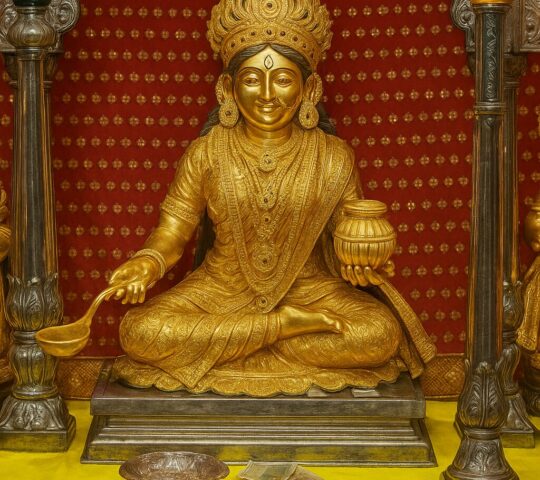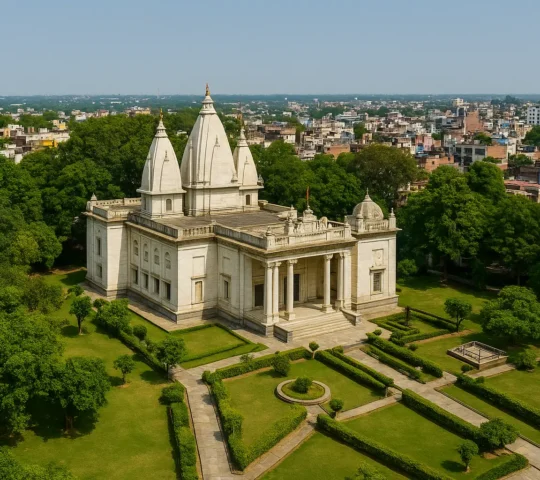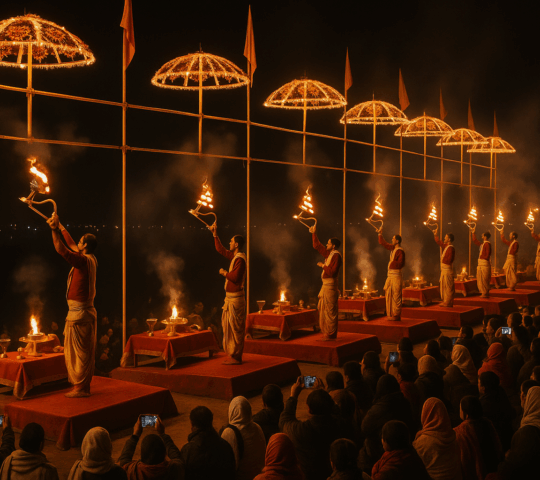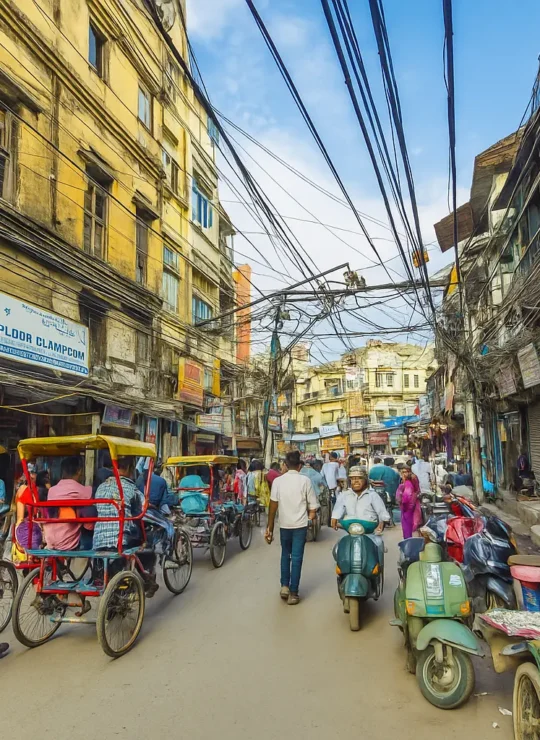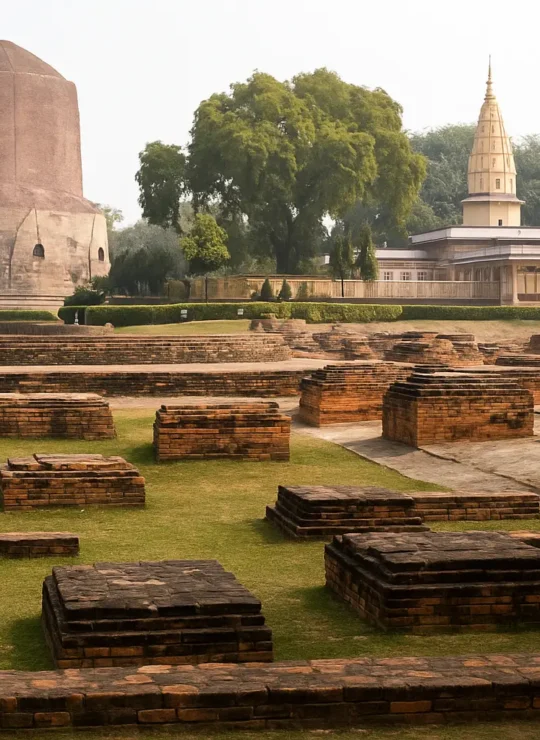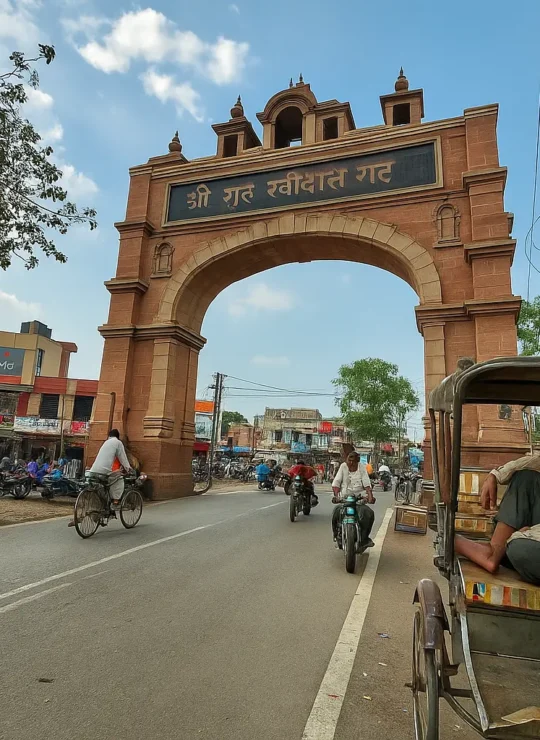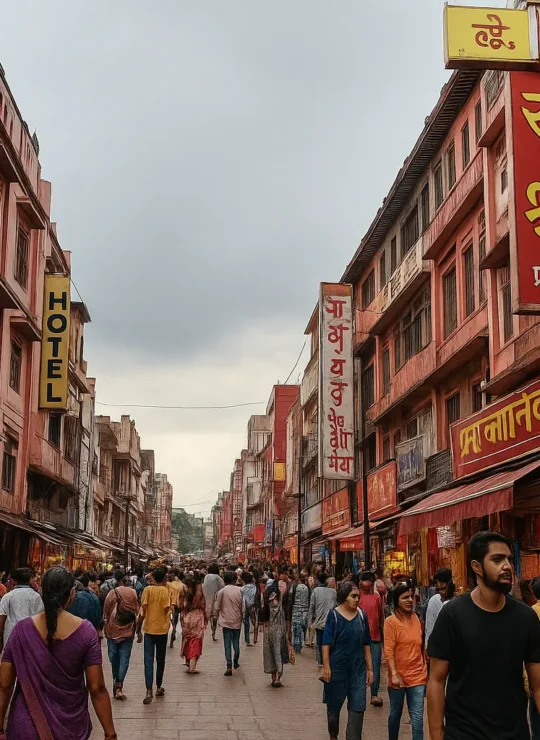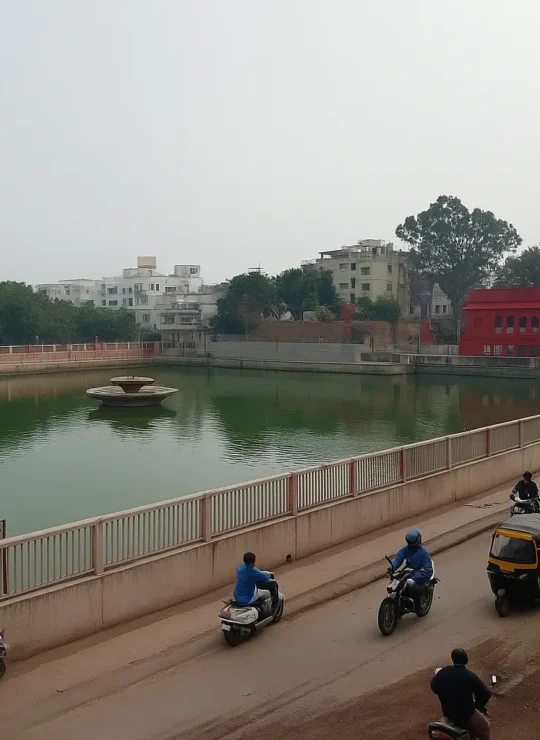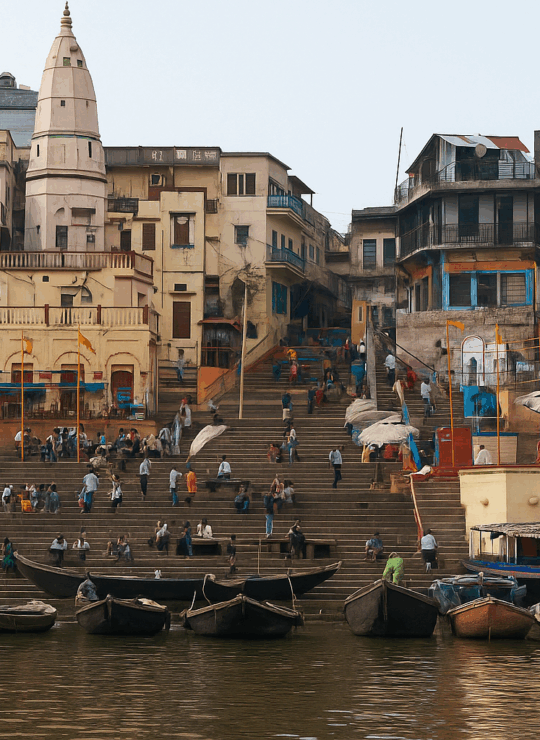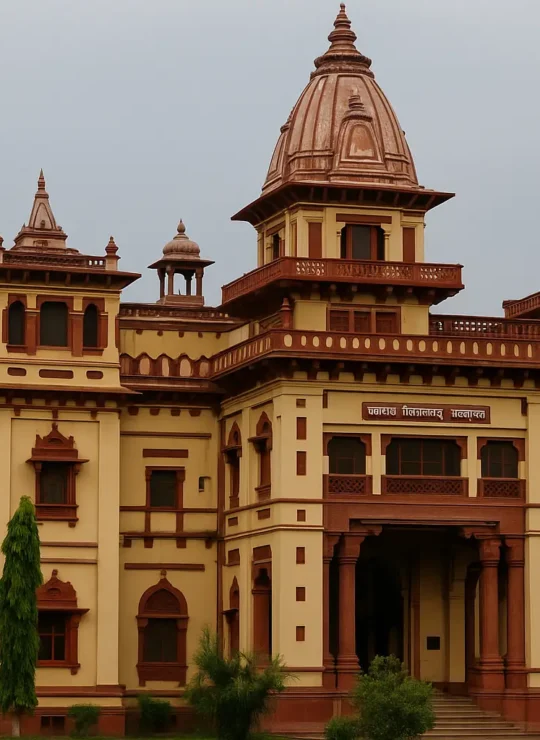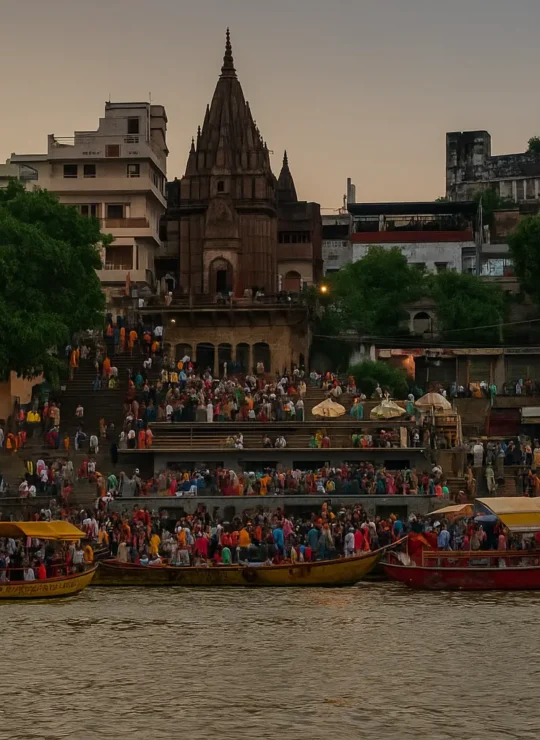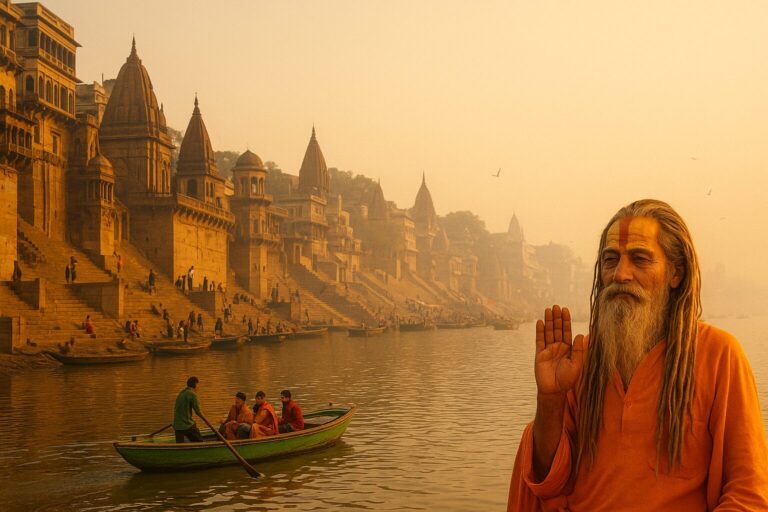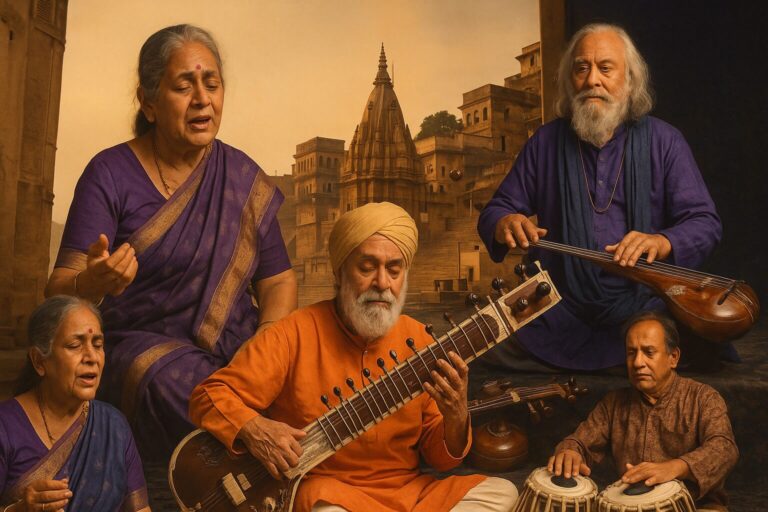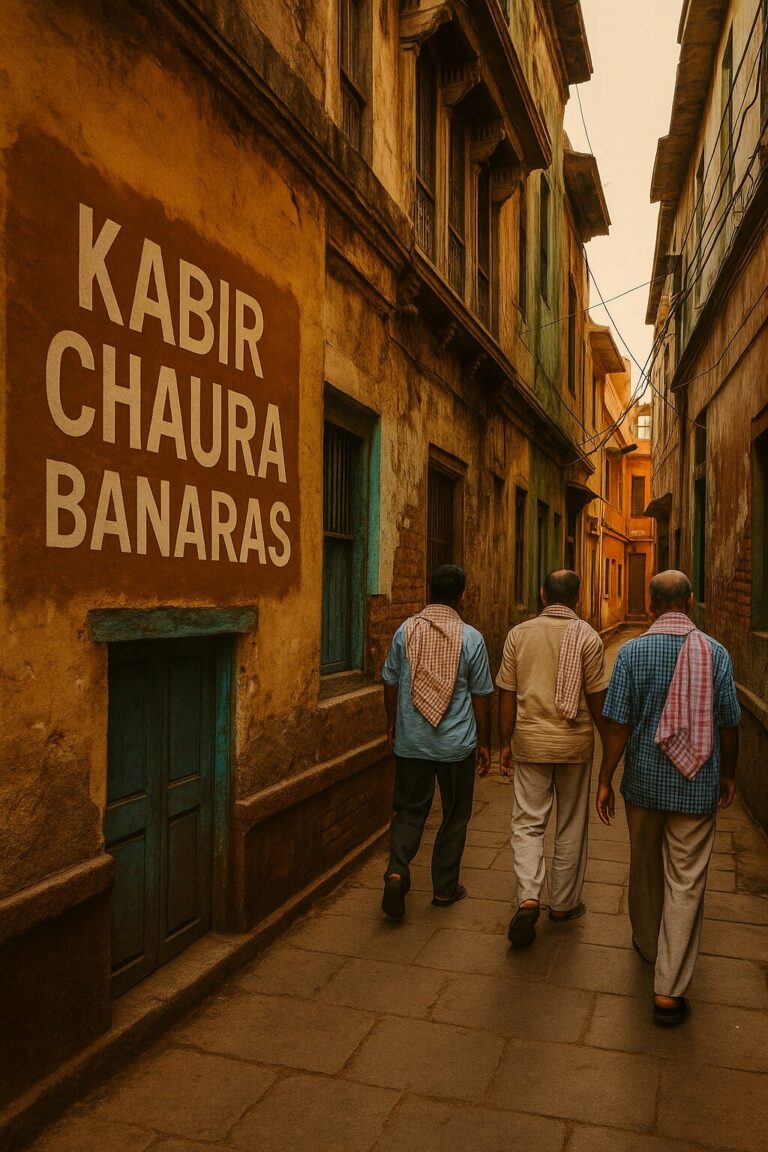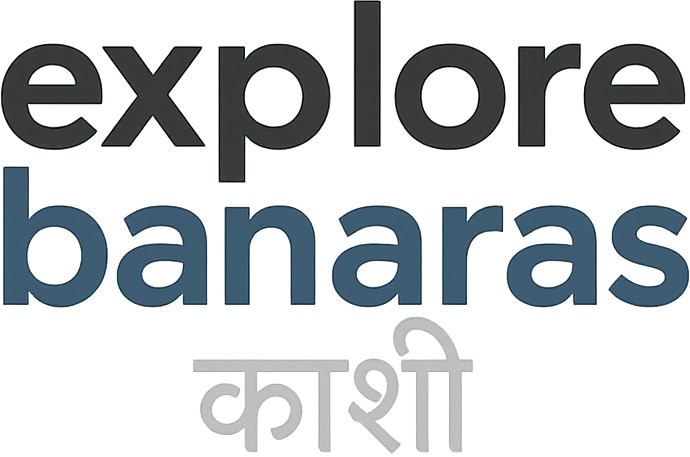Banaras
As India as It Gets
Attractions
Icons of Banaras
Banaras Ke Sitare
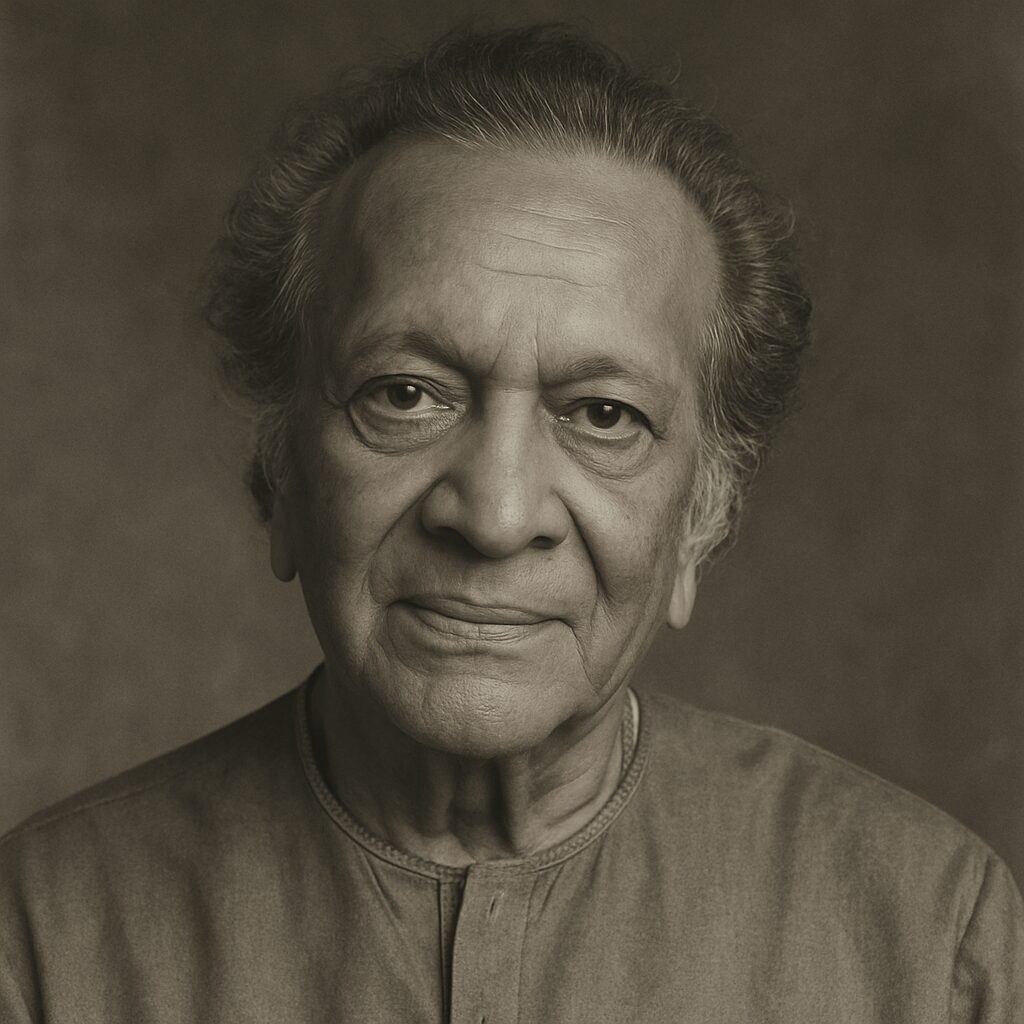
Pandit Ravi Shankar: Sitar Virtuoso & Composer
A world-renowned sitar maestro, Pandit Ravi Shankar played a pivotal role in bringing Indian classical music to the global stage. His emotionally rich performances and collaborations with artists like George Harrison and Yehudi Menuhin transformed how the world heard India.
Honoured with Bharat Ratna, multiple Grammy Awards, and global acclaim, he remains a towering figure in world music.
Born and raised in Varanasi, his early life in the culturally rich city shaped his artistic foundation and spiritual leanings.
Famous Works: West Meets East, Concert for Bangladesh, Chants of India
Born: April 7, 1920, Varanasi Died: December 11, 2012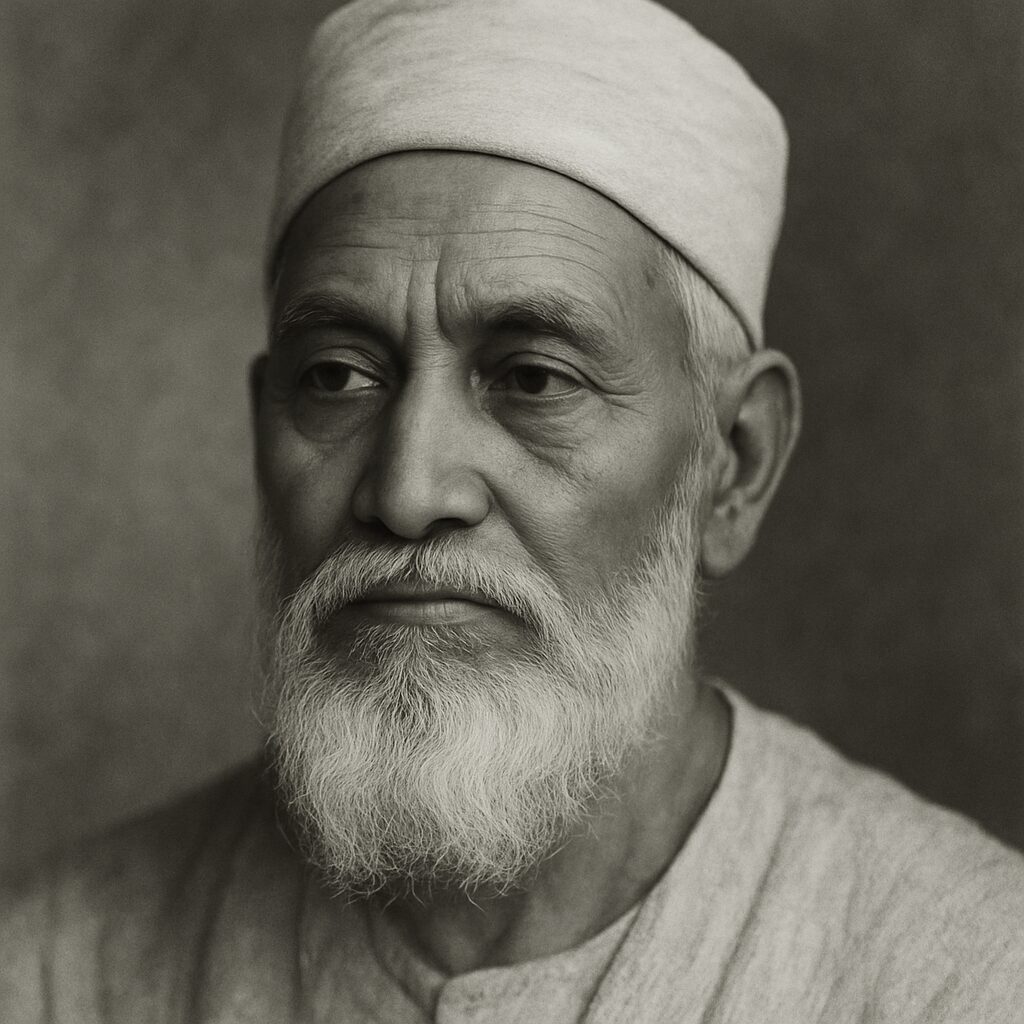
Kabir Das: Mystic Poet & Saint
Kabir was a 15th-century poet-saint whose dohas (couplets) are deeply embedded in the Bhakti movement. Born in a weaver’s family, he challenged orthodoxy with spiritual wisdom accessible to the common people.
His poetry remains foundational in Indian mysticism and is revered across Hindus, Muslims, and Sikhs.
Kabir was born, lived, and spread his teachings from Banaras. The Kabir Chaura Math is still a spiritual center built in his memory.
Notable Work: Bijak, Kabir Granthavali
Born: 1440, Lahartara, Varanasi Died: 1518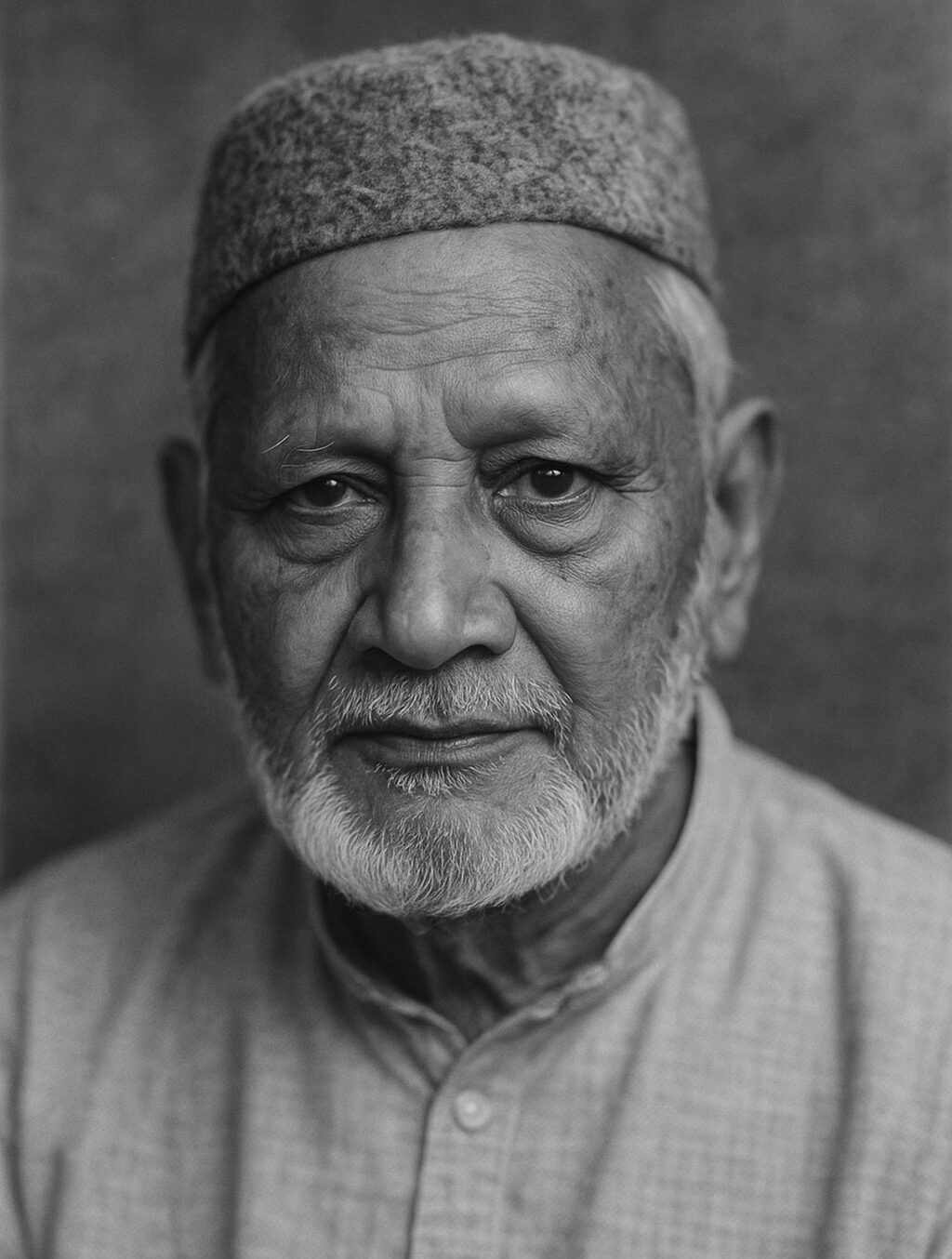
Ustad Bismillah Khan: Shehnai Maestro
Revered for popularising the shehnai as a classical instrument, Bismillah Khan spent most of his life in the narrow lanes of Banaras.
Though born in Bihar, he considered Banaras his soul and never moved despite global fame. He often played on the banks of Ganga and at Vishwanath Temple.
Bharat Ratna
Born: March 21, 1916, Dumraon (Bihar), lived in Varanasi Died: August 21, 2006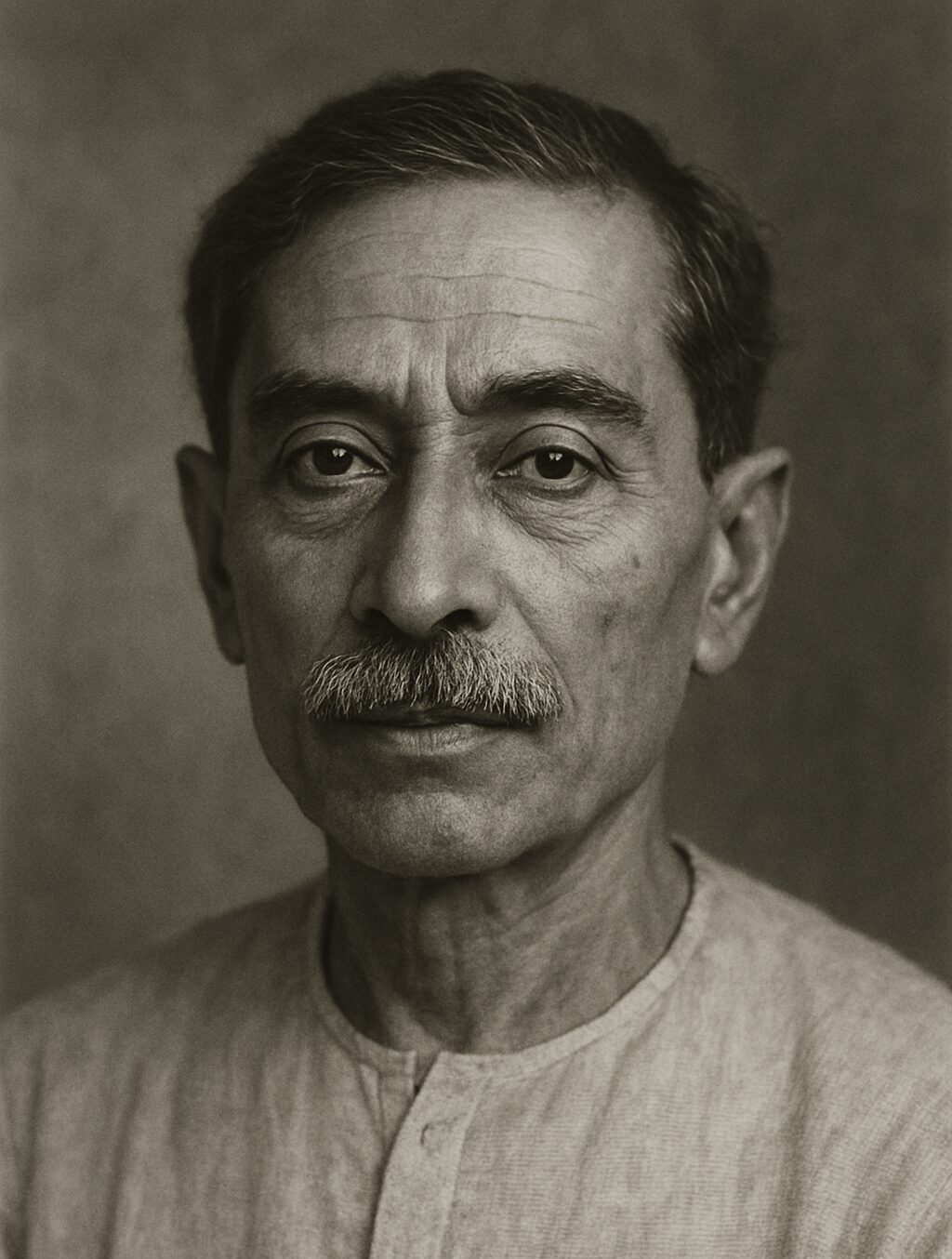
Munshi Premchand: Novelist
One of the greatest Hindi-Urdu writers of India. Known for realistic portrayals of village life, poverty, and social injustice. His pen brought rural India’s unspoken struggles to the literary forefront.
A pioneer of modern Indian literature, Premchand’s novels and short stories are part of school curricula and cultural memory.
Born in Lamhi village near Varanasi and deeply influenced by the city’s social and cultural texture.
Famous Works: Godaan, Nirmala, Karmabhoomi, Shatranj Ke Khiladi
Born: July 31, 1880, Lamhi (near Varanasi) Died: October 8, 1936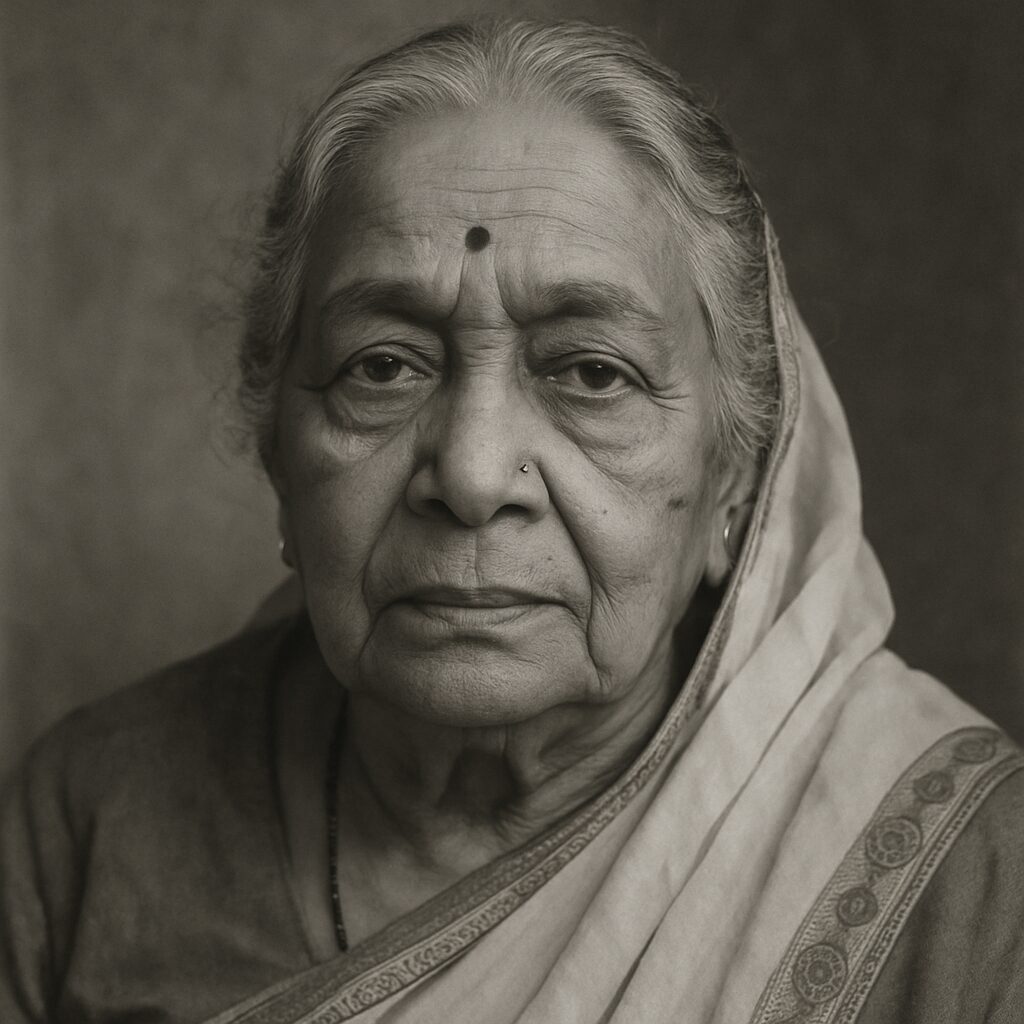
Girija Devi: Classical Vocalist (Thumri Queen)
Fondly known as the “Queen of Thumri”, Girija Devi was one of the most celebrated figures of the Banaras Gharana. Her voice brought to life semi-classical genres like Thumri, Kajri, Chaiti, and Tappa, infusing them with depth and devotion.
A Padma Bhushan and Padma Vibhushan awardee, she taught at prestigious institutions and inspired generations of classical musicians.
Born and trained in Varanasi, her music embodied the soul of the city — emotional, graceful, and steeped in tradition.
Famous Performances: Her renditions of Babul Mora, Sawan Aayo, and Rasiya remain immortal in Hindustani music.
Born: May 8, 1929, Varanasi Died: October 24, 2017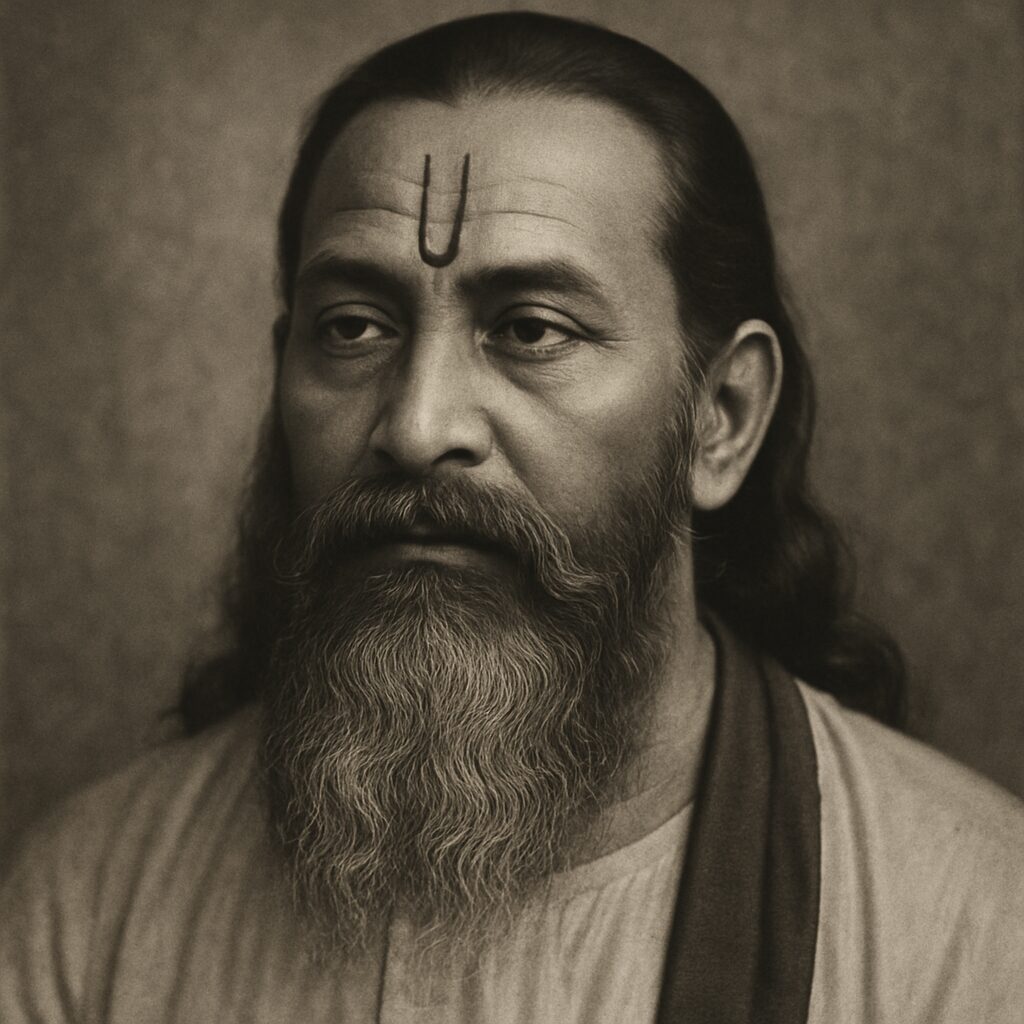
Sant Ravidas: Bhakti Saint & Social Reformer
Sant Ravidas was a prominent saint of the Bhakti movement, revered for his spiritually profound yet socially reformist poetry. Born into a family of leather workers, he challenged caste discrimination and preached equality, unity, and devotion to a formless God.
His hymns are part of the Guru Granth Sahib and are sung across sects. He inspired reform movements, including that of Meera Bai, who considered him her guru.
Born and spiritually active in Seer Govardhanpur, Varanasi, where the Sant Ravidas Janmasthali Mandir now stands as a major pilgrimage site.
Famous Verses: “Man changa to kathoti mein Ganga” — purity lies within, not in rituals.
Born: c. 1450, Seer Govardhanpur, Varanasi Died: c. 1520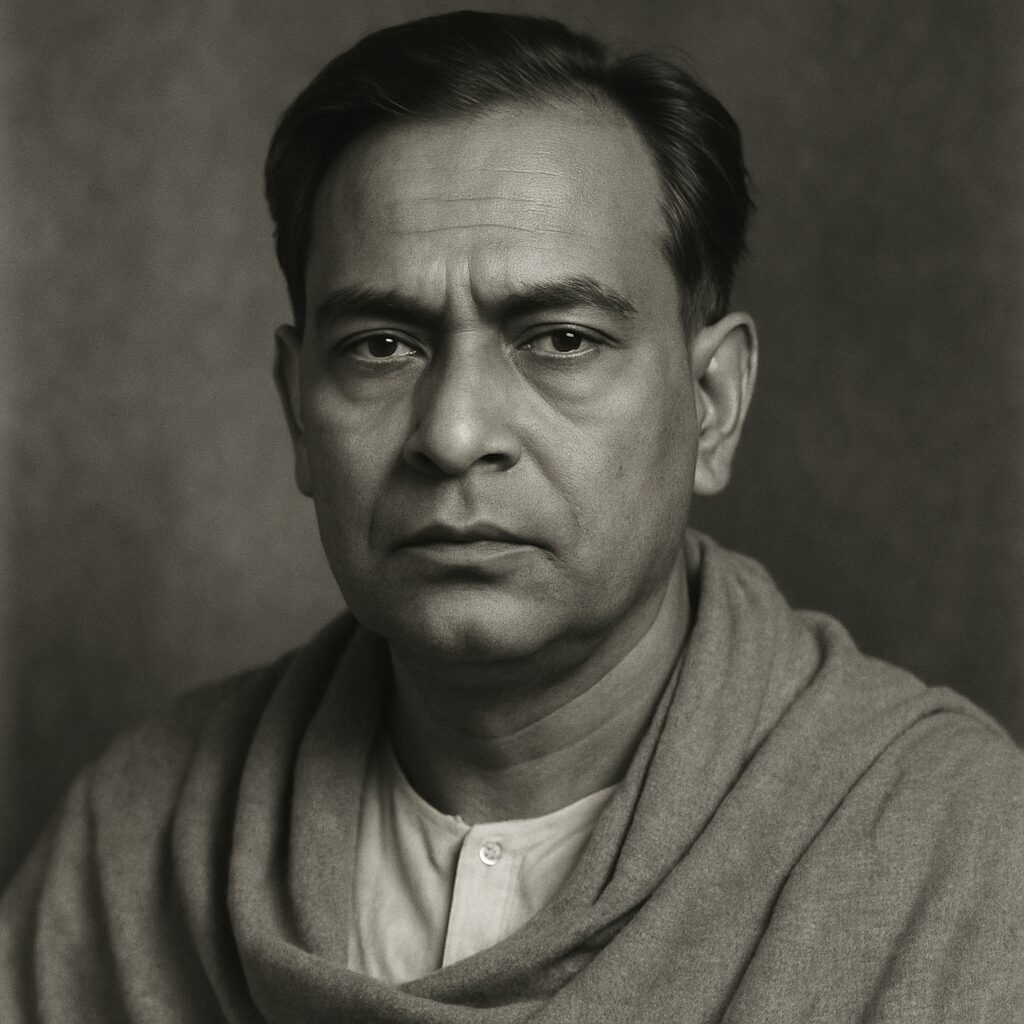
Jaishankar Prasad: Poet, Playwright & Novelist
A pillar of the Chhayavaad movement in Hindi literature, Jaishankar Prasad was a master of poetry, drama, and fiction. His writing is known for its romanticism, nationalism, and spiritual depth, all richly inspired by India’s classical heritage.
His works like Kamayani, Skandagupta, and Chandragupta remain landmarks of modern Hindi literature, blending philosophy with poetic beauty.
Born in Varanasi, his literary journey was deeply rooted in the city's cultural aura, temples, and intellectual traditions.
Famous Works: Kamayani, Ansu, Skandagupta, Kankal
Born: January 30, 1889, Varanasi Died: January 15, 1937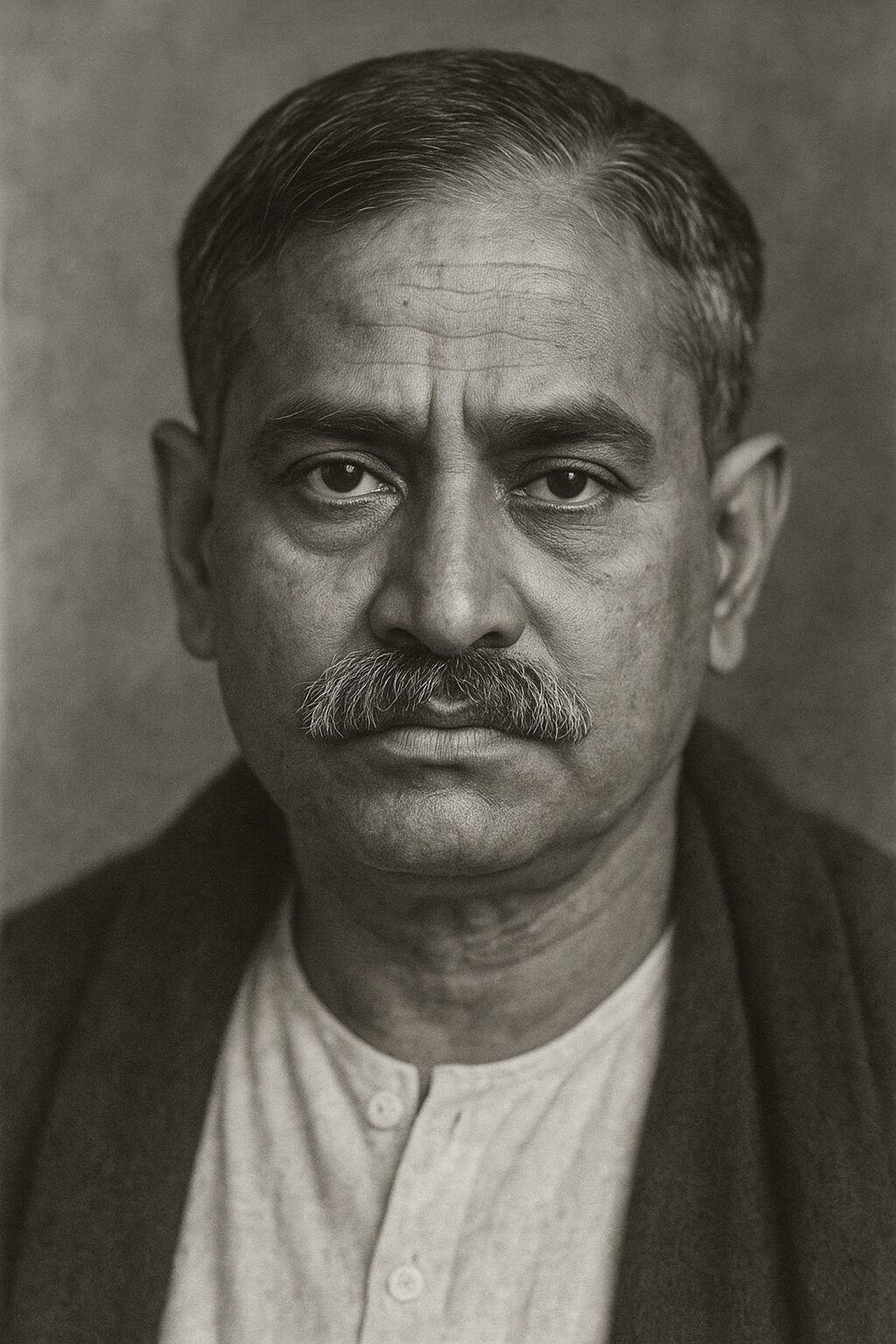
Bharatendu Harishchandra: Poet, Dramatist & Father of Modern Hindi Literature
Widely regarded as the father of modern Hindi literature, Bharatendu Harishchandra was a dynamic writer, poet, and social reformer. He championed the use of Hindi at a time when Persian and Urdu dominated, and infused his writing with themes of nationalism, reform, and cultural pride.
His works laid the foundation for modern Hindi prose and drama. He edited influential journals like Kavi Vachan Sudha and staged socially relevant plays.
Born into a prominent Banarasi family, he used the city’s rich cultural life and traditions as both subject and stage. His home near Machhodari is now a literary landmark.
Famous Works: Andher Nagari, Satya Harishchandra, Bharat Durdasha
Born: September 9, 1850, Varanasi Died: January 6, 1885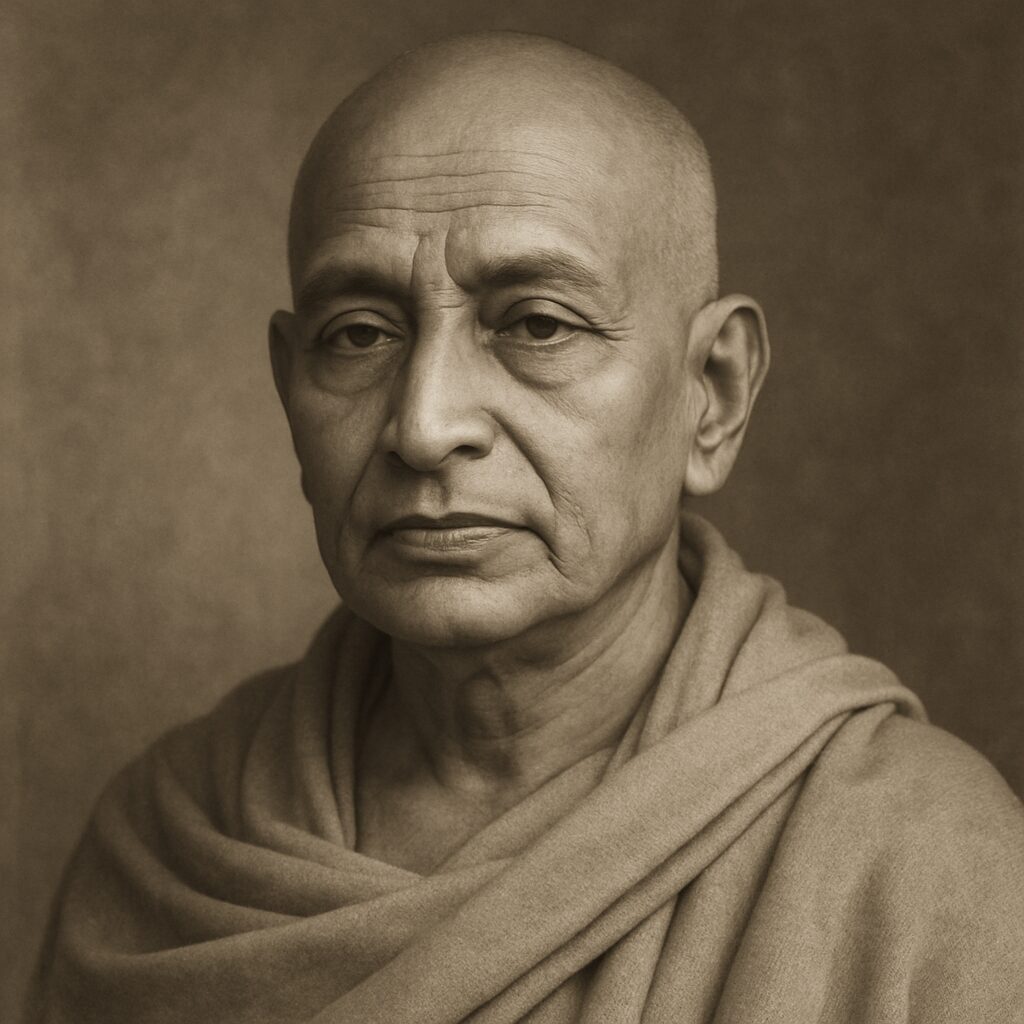
Goswami Tulsidas: Poet, Saint & Philosopher
Tulsidas was a revered Hindu poet-saint and philosopher best known for writing the Ramcharitmanas, an epic retelling of Valmiki's Ramayana in Awadhi. His verses brought Lord Ram’s story to the masses in a language they could understand and revere.
A central figure of the Bhakti movement, his works continue to guide devotional life across North India. His dohas and chaupais are chanted in temples and homes to this day.
He spent much of his later life in Varanasi, especially around Tulsi Ghat, where he is said to have composed parts of the Ramcharitmanas. The Tulsi Manas Mandir now stands in his honor.
Famous Works: Ramcharitmanas, Vinay Patrika, Hanuman Bahuk
Born: c. 1532, Rajapur (Chitrakoot, UP) Died: c. 1623, VaranasiItineraries
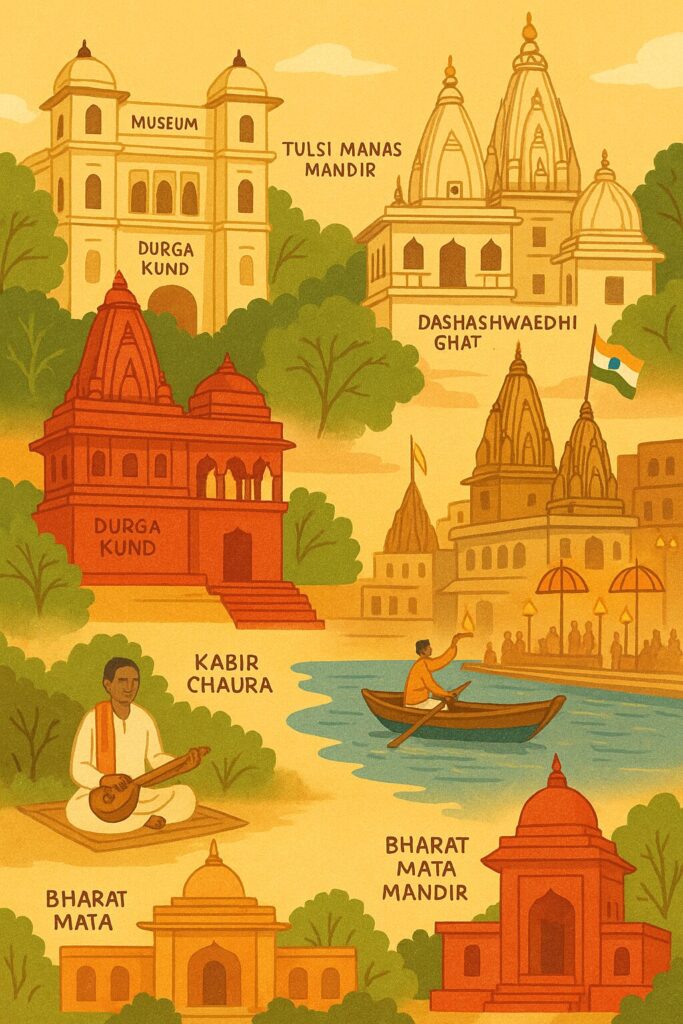
1-Day Cultural & Heritage Explorer
- BHU • Bharat Kala Bhavan • Tulsi Manas Mandir • Dashashwamedh Ghat • Kabir Chaura • Bharat Mata Mandir
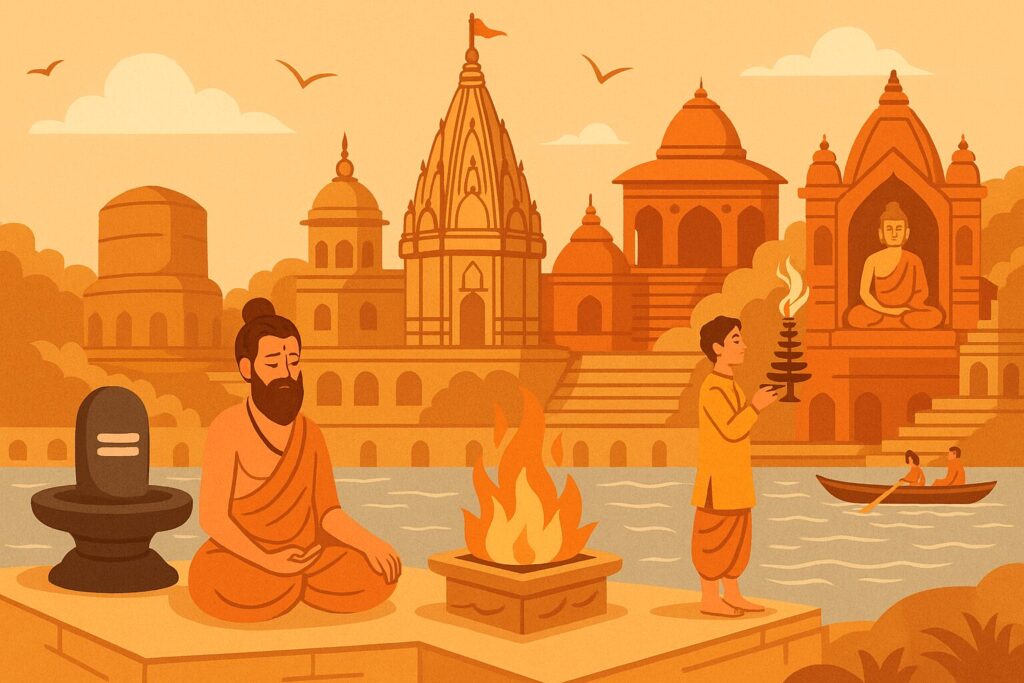
3-Day Spiritual Immersion
- Subah-e-Banaras • Kashi Vishwanath • Annapurna Devi • Sankat Mochan • Kabir Chaura Math • Tulsi Ghat • Sarnath • Ganga Aarti
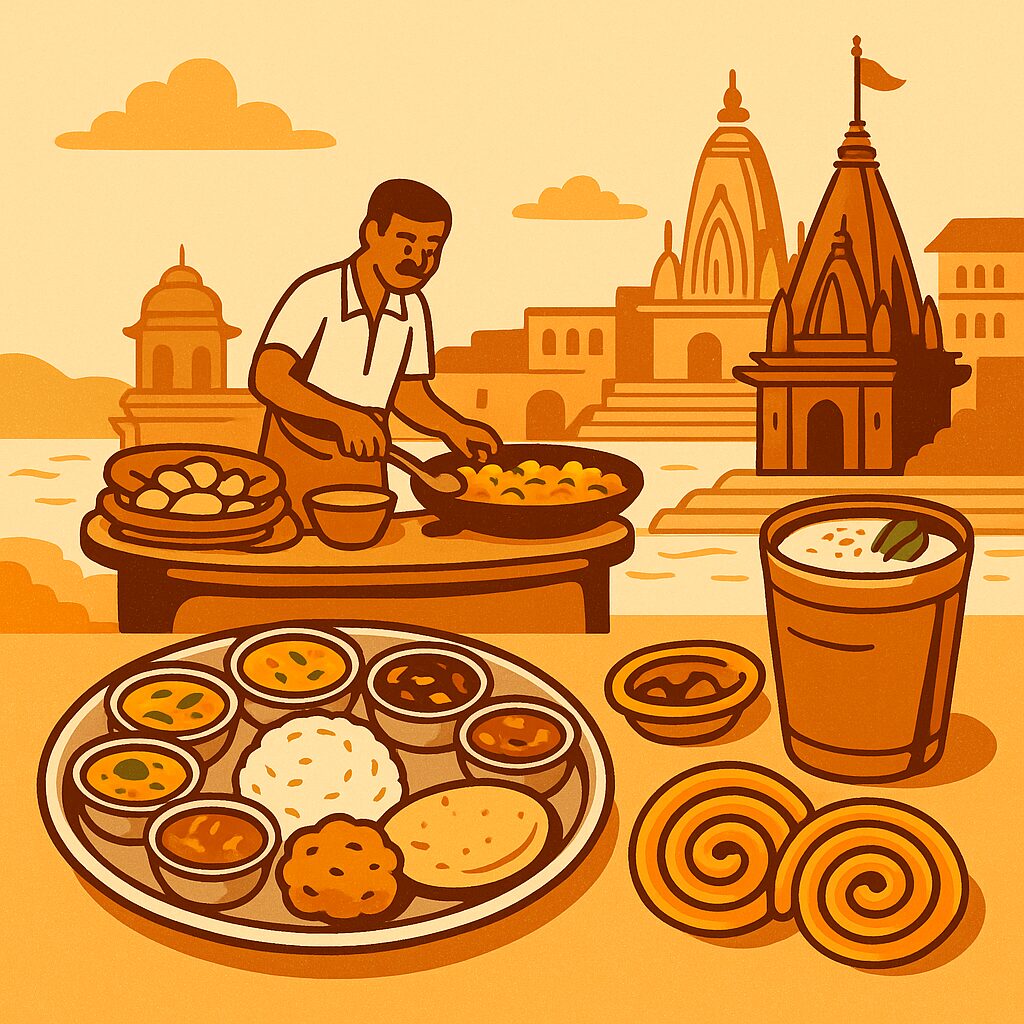
2-Day Banaras Food Trail
- Kachori Sabzi • Malaiyo • Chena Dahi Vada • Lassi • Thandai • Tamatar Chaat • Paan • Baati Chokha • Launglata • Kheer Kadam
Banaras in their Words
Benaras is older than history, older than tradition, older even than legend, and looks twice as old as all of them put together.

Mark Twain
The great American author stood at the ghats of Banaras and saw a city that felt timeless, whispering stories of ages past.
Thickly populated and very prosperous... a great center of religious learning.
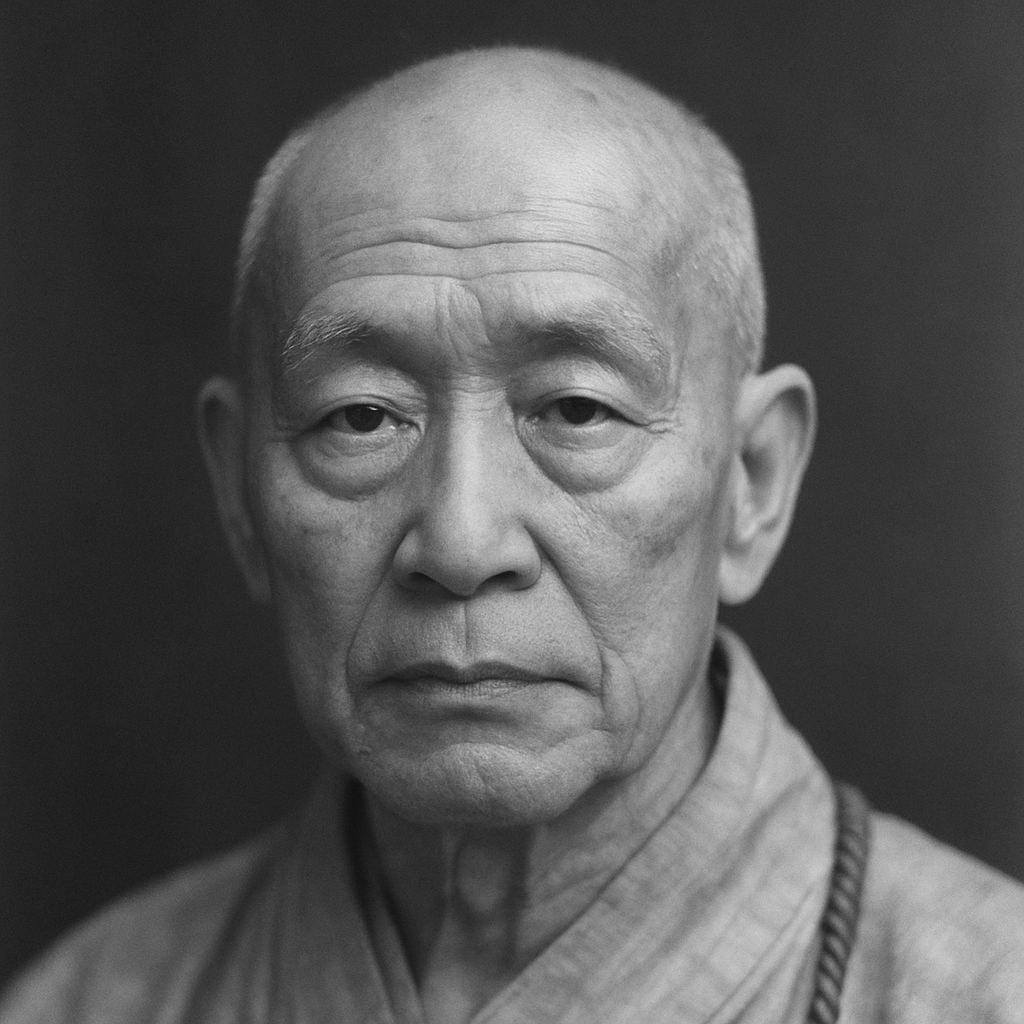
Xuanzang (Hsüan-tsang)
The 7th-century monk from China found Banaras overflowing with knowledge, a beacon of philosophy and faith
Benaras is the heart of Hinduism, the place where the pulse of India beats most strongly.
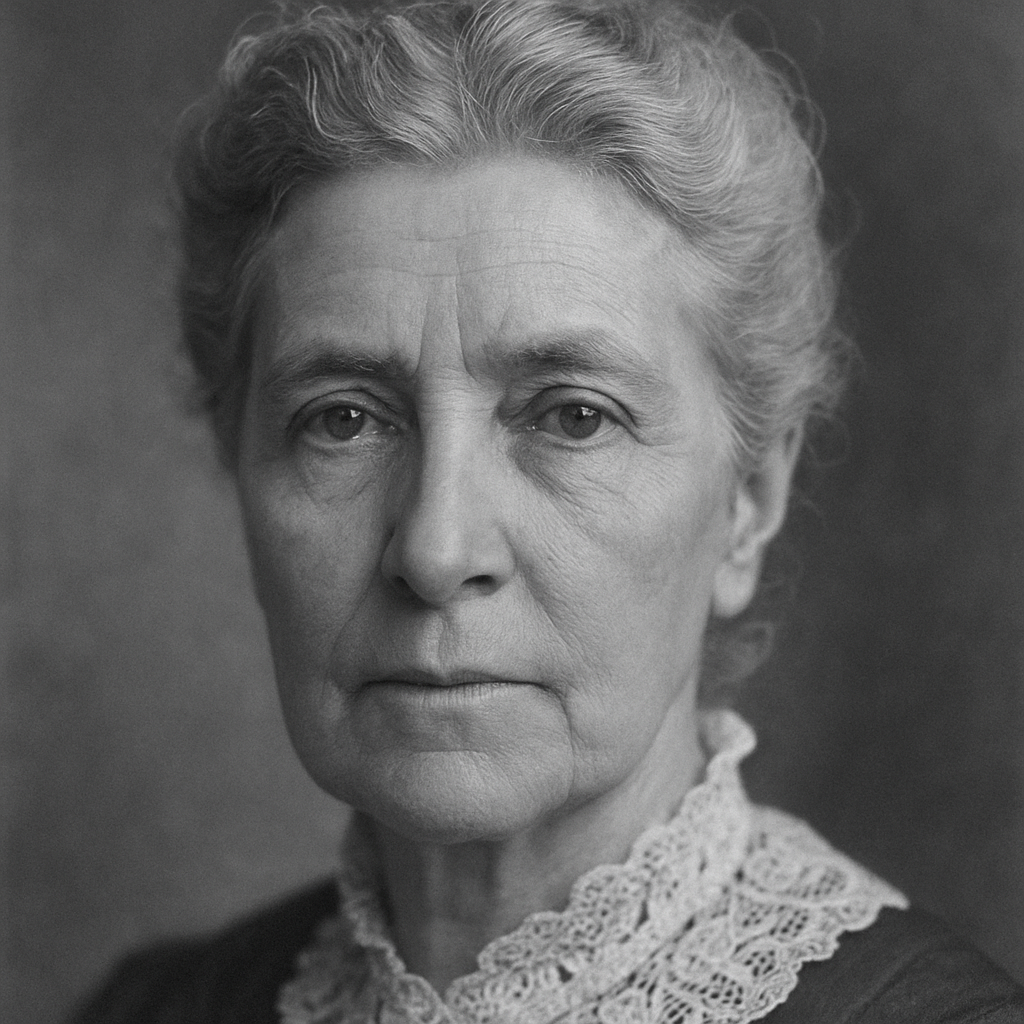
Annie Besant
A crusader for Indian spirituality, Annie Besant found the soul of India pulsing through Banaras’s lanes and temples
Benares is a large and beautiful city, filled with merchants and skilled craftsmen.
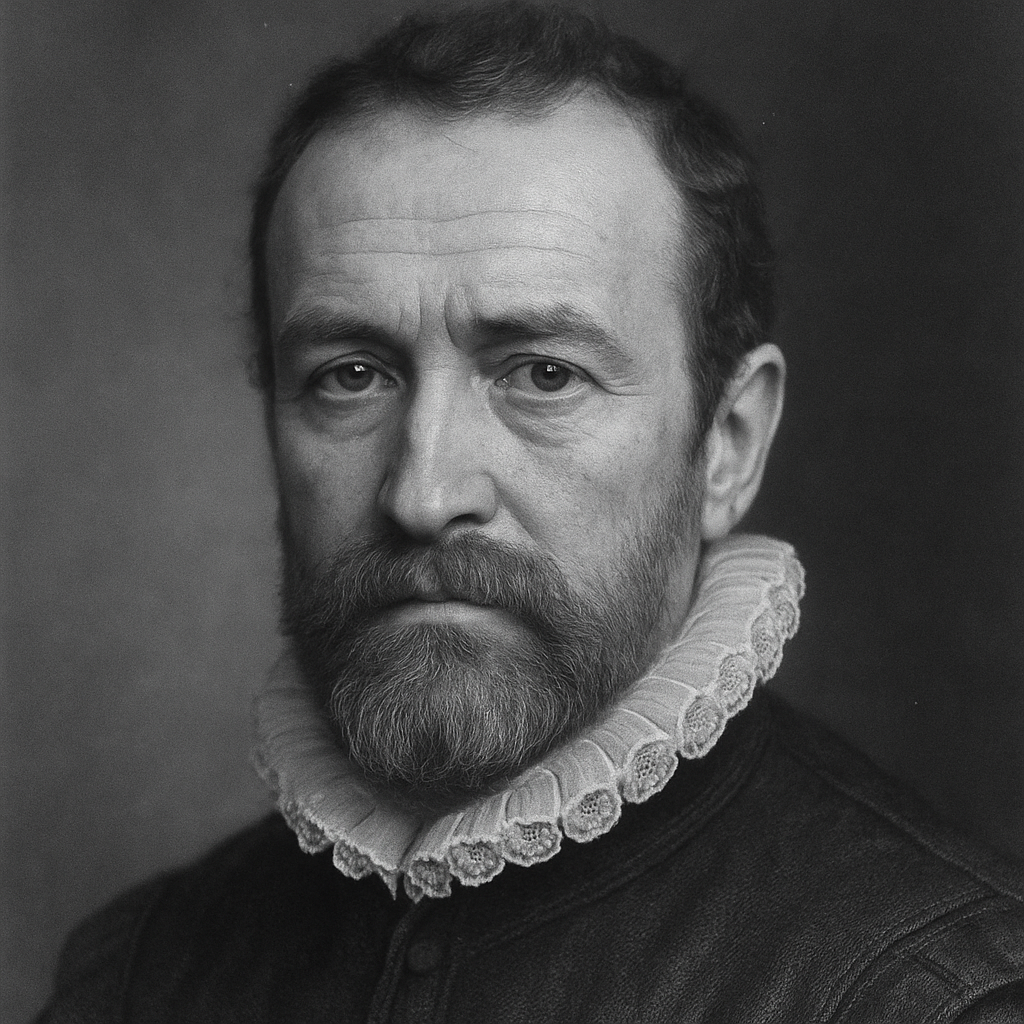
Ralph Fitch
In the 16th century, Fitch wandered into Banaras and marveled at its colorful markets and vibrant artisan life.
To the ordinary Indian, Varanasi is a magical, sacred place where the divine is immanent.
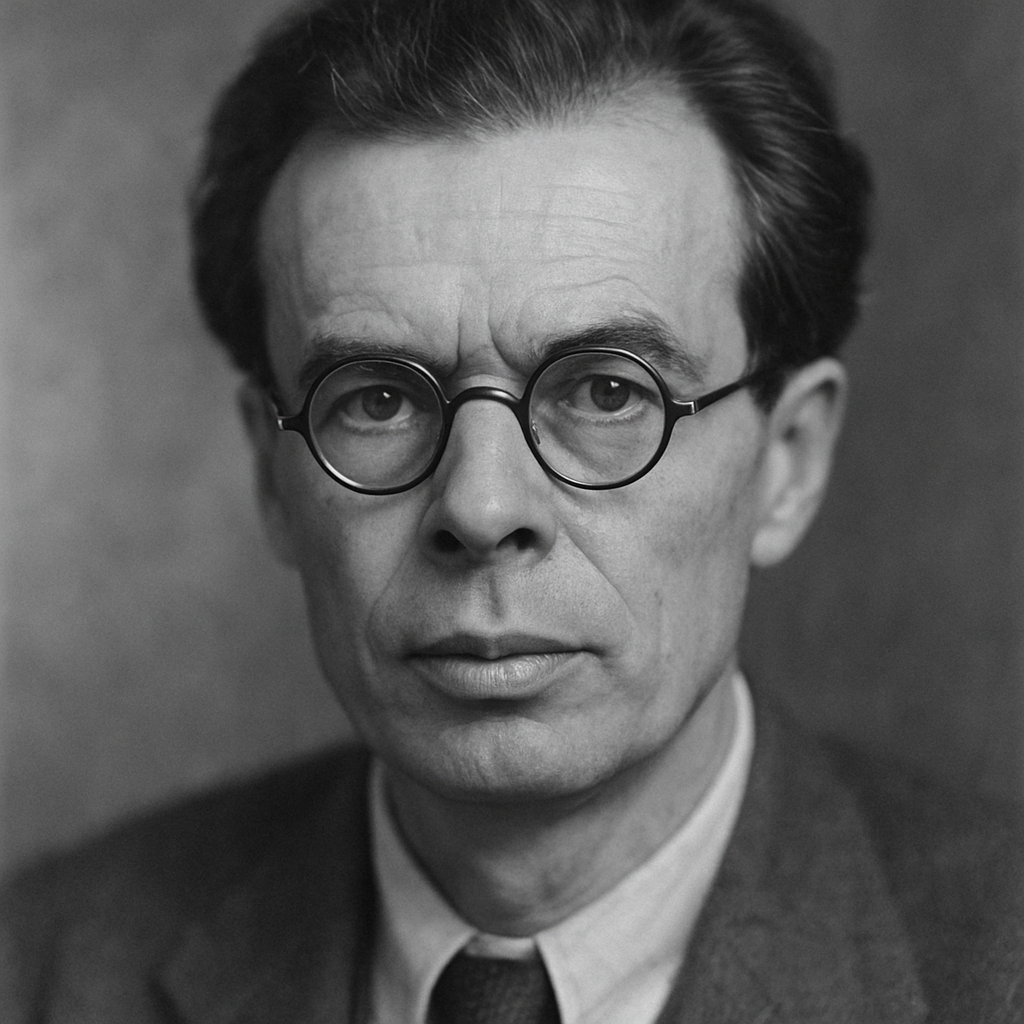
Aldous Huxley
For Huxley, Banaras was a place where every breath, every sight shimmered with the presence of the divine.
The city of Banaras is the chief seat of learning in India.
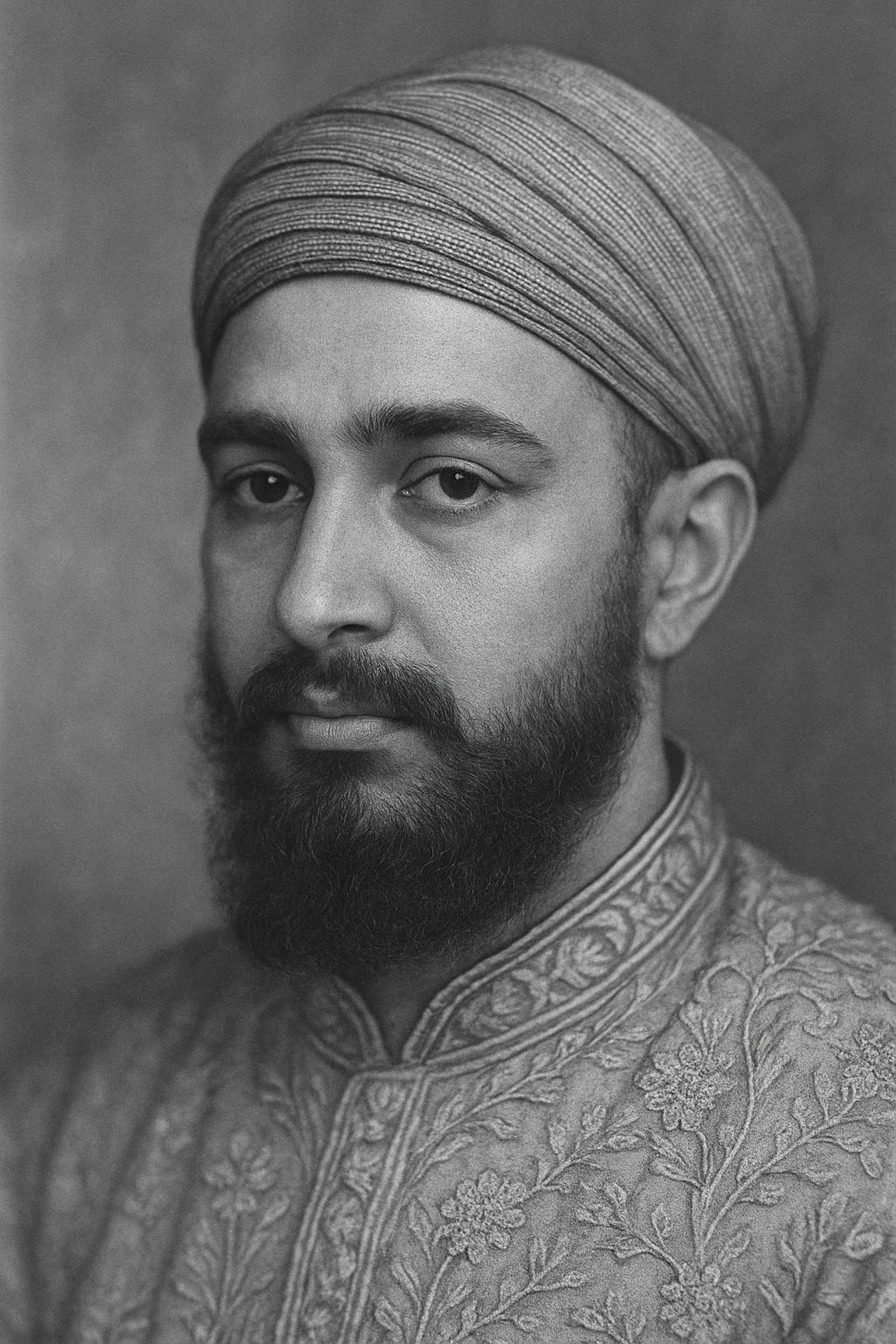
Abu'l-Fazl
From the court of Emperor Akbar, Abu’l-Fazl celebrated Banaras as a fountain of scholarship, tradition, and wisdom.
Varanasi is My most beloved city, closer to My heart than even Heaven.
